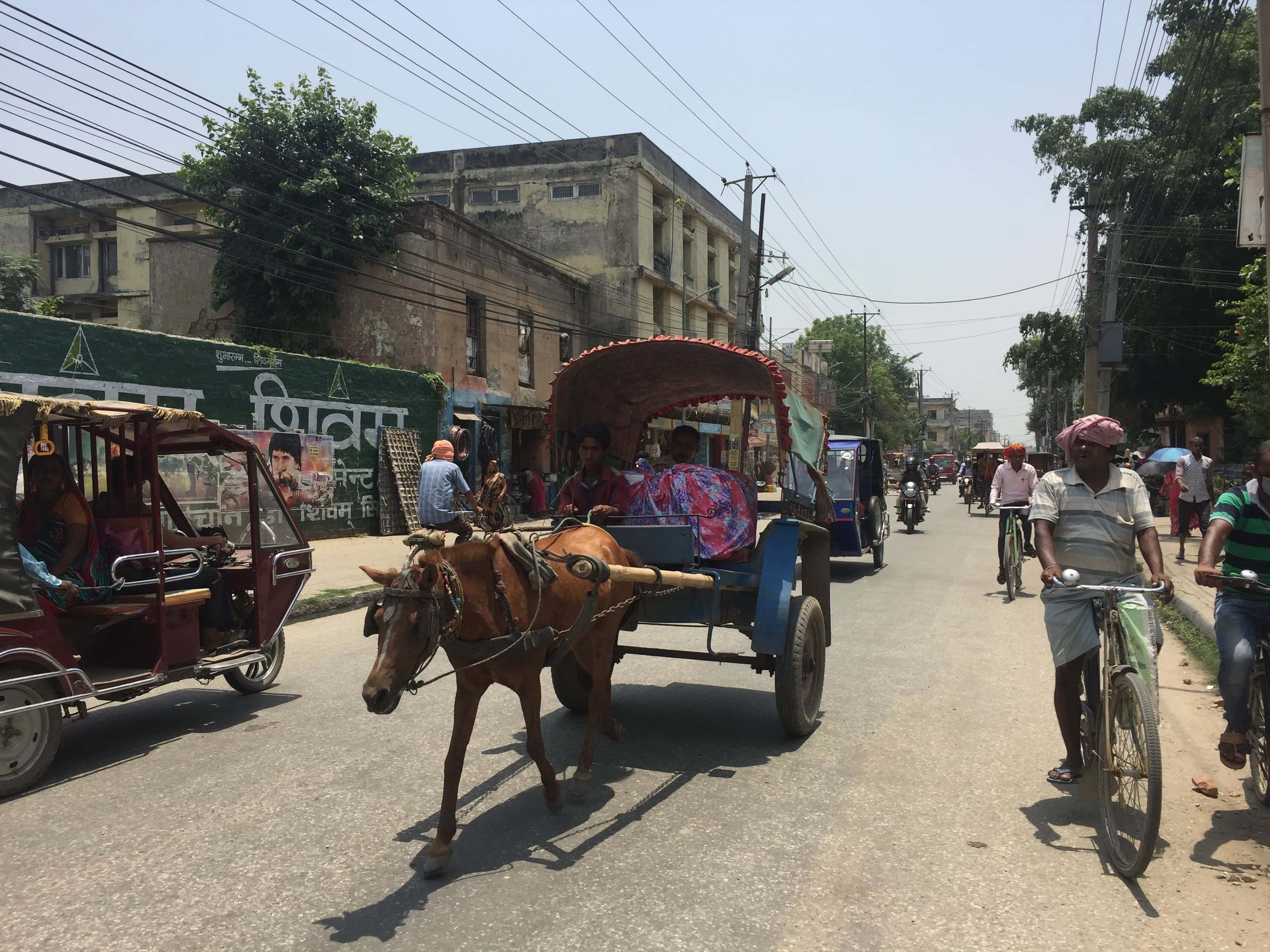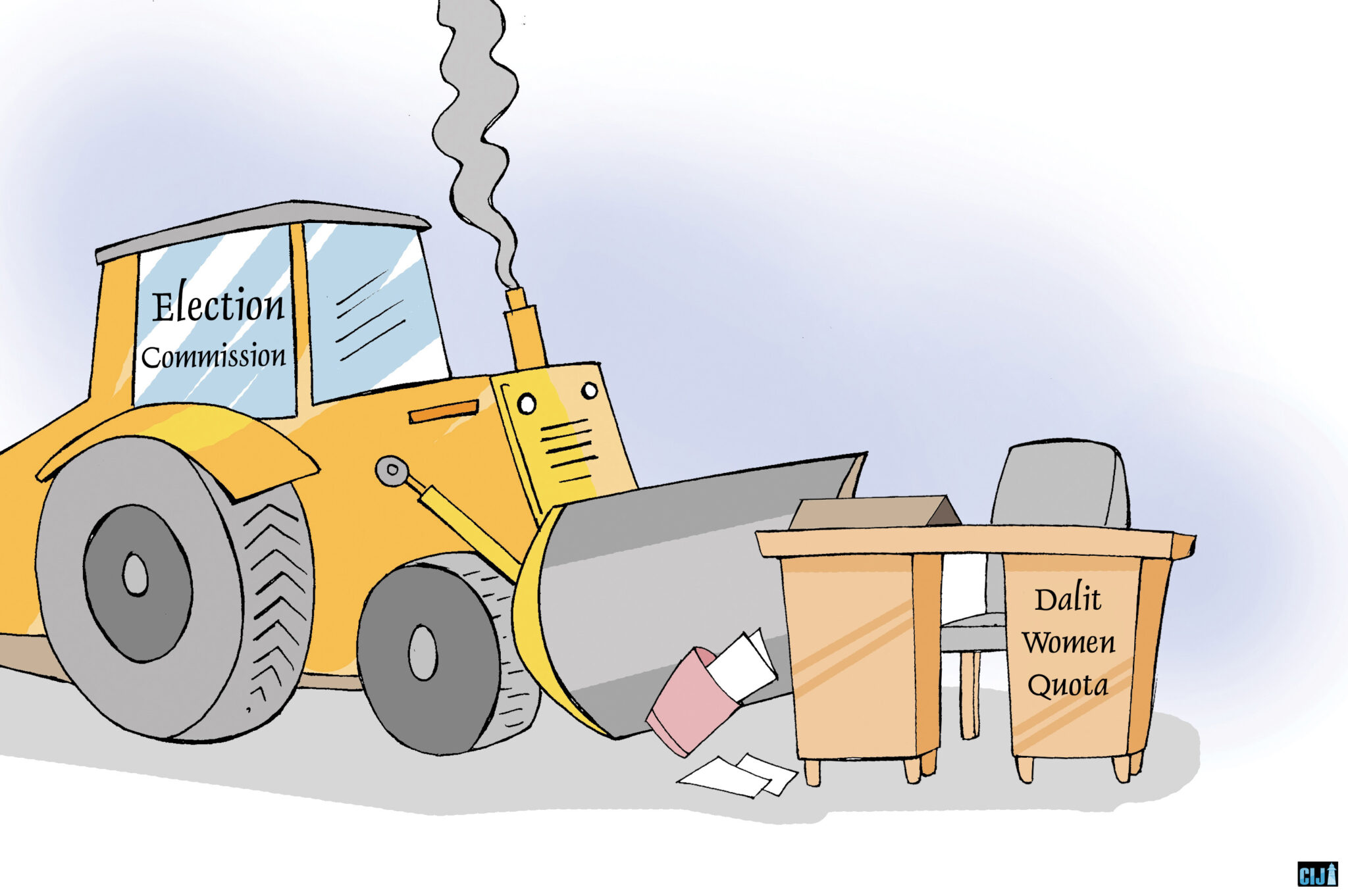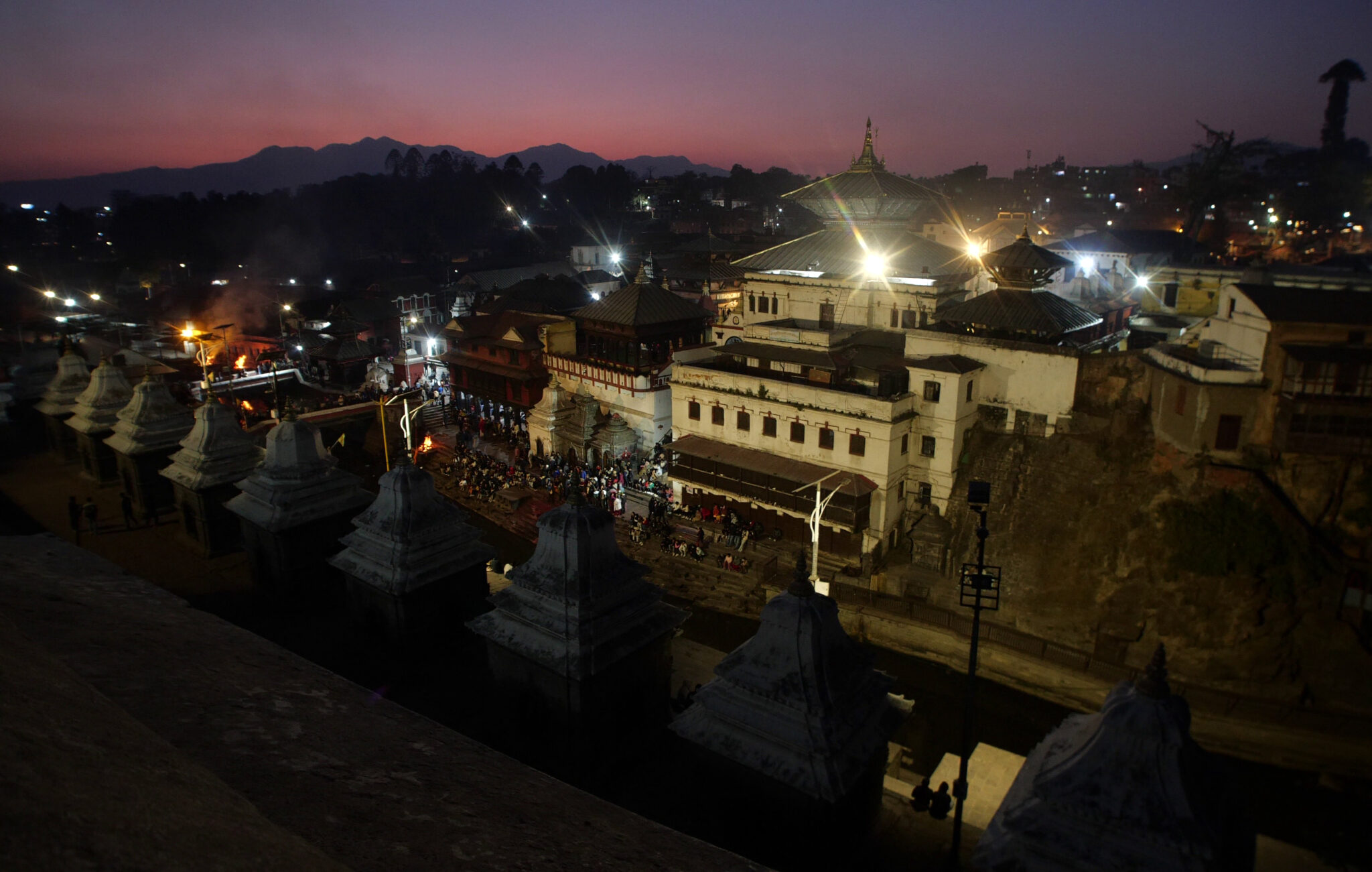Among several factors influencing elections in Madhesh, big-spending of money shapes the process. "Bhagawan tahat bheti", (fund raising as per the influence of local leaders) and ‘katla ki raat' (late night effect) influence the next day's elections in Madhesh. Other factors include caste and candidate's personal influence.
-Saroj Raj Adhikari /Bhusan Yadav : Centre for Investigative Journalism
The Upendra Yadav-led Sanghiya Samajbadi Forum is in the fray of local elections with a tempestuous slogan of ‘ballot instead of bullets' soon after the completion of first phase of local elections. Similarly, Bijay Kumar Gachhadhar-led Madhesi Janadhikar Forum-Democratic is currently a part of the coalition government. Now that the disgruntled Rashtriya Janata Party (RJP) has come under immense pressure to participate in the second phase of local elections.
Consider what Baidhyanath Sah, Principal of Juddha High School, Rautahat had to say. "Despite RJP's decision to boycott the local elections, scored of its party leaders have filed their candidacies as independent candidates. RJP district vice chairman Mohammad Israyal Ansari, who is contesting for the deputy mayoral candidate of Gaur municipality, called me seeking my support to win the election."
The RJP has publicly branded CPN-UML as an ‘enemy of Madhesh'. However, dissenting to RJP's decision to boycott the local election, Salim Miya Ansari, joint-general secretary of Terai Madhesh Democratic Party – RJP's coalition partner – joined the CPN-UML along with his supporters on 13th Jestha 2074 BS elucidating RJP-affiliated leaders' yearning for elections.
Several RJP local leaders joined other parties rebuffing the party's decision of boycotting local polls while some are all set to contest the polls as independent candidates. In fact, some aspirants have started squandering money to lure voters. "With the intensifying trend of RJP supporters and local leaders joining other parties, the party is under tremendous pressure to take part in the elections," said Himmat Singh, senior advocate of Saptari. He suggests major parties to give a ‘face saver' to local leaders to avert unpleasant impact in future. The RJP, which previously threatened to thwart local polls, has now postponed its protest programs. Reciprocating to RJP's postponement of protest programs, the government is making efforts to convince RJP leaders to take part in the elections. Amid speculations whether or not the RJP would participate in the polls, election campaigns are in full swing in Madhesh. However, campaigning has been limited to areas in and around the highways. Commenting on the latest political developments, former sports minister and UML parliamentarian of Bara-6, Purusottam Poudel said, "People in the southern belt of Madhesh, including Basantapur, Piparpathi village are enthusiastic to take part in the election. Campaigns are in full swing."
Despite its decision to boycott elections, RJP has been carrying out election-related activities in some areas. However, party leaders prefer to term these programs as ‘formation of struggle committee' or ‘welcoming new cadres'. In fact, the future course of the party will purely depend on the decision at the center. Nawal Kishor Singh, RJP coordinator of Bara district says, "Taking part in the election can be a betrayal to those who laid their lives for the cause of Madhesh. The question of whether we can convince those people who lost their loved ones during the previous Madhesh movements or not?"
RJP central general secretary Rajesh Man Singh, an aspirant for Birgunj sub-metropolitan city mayor, said the environment has not been conducive enough to hold elections without addressing the voices of the Madhesh movement. He said that RJP's rejection of polls will affect the election environment in province no. 2.
Election concern
The announcement of Birgunj – business hub of Province No. 2 – as a metropolitan city has brought about a sense of excitement in Parsa district with locals hailing the decision by illuminating candles. "People are thrilled to cast ballots. However, political parties, seemingly not very enthusiastic, are yet to pick up the pace," local politician Rakesh Singh said. People in the region are apprehensive about moving ahead with election process following the Supreme Court's decision to bar government's move to increase the number of local-level structures. However, the government's decision to announce Biratnagar and Birgunj as metropolitan cities has added some gusto.

The Sanghiya Samajbadi Forum, which participated in the first phase of local polls, took advantage of RJP's decision to boycott the polls by stepping up its activities in the region. Moreover, Forum seems to be energized after former UML parliamentarian Pradhumna Chauhan, who had won the first Constituent Assembly election from Parsa-4, and alternative central member Prahlad Giri joined the party. Forum's District Chairman, Pradip Yadav expressed the optimism that a number of RJP influential local leaders will join his party. "The government has been compelling us to go for another round of stir by ignoring previous agreements. The government has frequently deceived us. Therefore, we have decided to adopt a tit-for-tat approach by taking part in the election and take revenge through ballots," Yadav said.
Parsa district Chairman of Nepali Congress, Jaynanda Chaurasiya's cell phone continued to buzz when he was welcoming new members at Bajani ward no 3 of Jitpur-Simara sub-municipality in Parsa. "People are full of life about elections more than us," he shared happiness. UML Parsa Chairman Prabhu Hajara says his party is all prepared to face local polls. Dismissing claims that UML's base has been totally obliterated in the Madhesh, he said, "Nepali Congress is UML's chief competitor here. Madhesh-based parties will come to the forefront only if they contested the polls by making a n understanding with other parties." Nepali Congress district President Ajaya Dwibedi said election environment has limped to some extent following the postponement of elections in Province no. 2. "We have decided to intensify election campaign despite the confusion," he added.
Binod Gupta, Chairman of Narayani Sub-Regional Hospital Development Committee, said people – who are frustrated with the attitude of local body officials – are eager to elect their representatives. "Since the secretary and other officials prefer to stay in district headquarters hampering their work, people want to see elected representatives taking the seats," Gupta, who is also a lecturer at the Thakurram Multiple Campus, said.
RJP leader, Ajay Kumar Gupta, who lost to CPN-UML senior leader Madhav Kumar Nepal with just less than 328 votes from Rautahat-1 says, "People now look forward to electing their representatives. Since the local election is being held after a long time, it would be judicious to bring all parties onboard. Sidelining RJP will lead to superfluous conflict," he said. Likewise, a central member of CPN-Maoist Center and party Chairman of Rautahat district, Bindeswor Yadav suggests taking onboard RJP to ensure peaceful and smooth election. Yadav says RJP will participate in the elections if it got a common election symbol and the government increased the number of local levels.
Election time: Money is ubiquitous
The election result in Madhesh is often unpredictable because, in the realm of political participation and elections, money connects and biases. The amount of money in a candidate's war chest can determine the victory in Madhesh. Local influential people and social leaders influence voters in favor of their desired candidates. Meanwhile, candidates are willing to spend as much money to appease influential people. This is what has been dubbed as "candidates spending money are likely to win" or ‘might is right'. In fact, election parties are becoming a fashion in recent t imes throughout the country. Therefore, the trend of raising fund among the candidates has begun in the region. According to an influential businessman and central member of Federation of Chamber of Commerce and Industries Ganesh Prasad Laath, he has been receiving several telephone calls in the name of fund-raising, though indirectly. Candidates for municipality or village municipality are required to garner more votes than a parliamentarian.
This election is likely to be more expensive and tougher in terms of spending than the previous Constituent Assembly elections during which a candidate was found to spend more than 5 crores rupees to win the polls. The trend of announcing candidacy just for the sake of fund-raising has been widespread in Madhesh. And Parsa district has been worst affected with several candidates making this a bargaining chip. "Another important and influential aspect is caste in Madhesh. Party organization does not make any vast difference here," Gupta said adding, "There is a practice that daughters and votes should not be given to another caste."
The population of Muslim community is significant in the east and mid-Madhesh. This population has been considered ‘silent voters' unless a Muslim has filed his/her candidacy. Therefore, possibilities to win the elections are higher to those appeasing this community. Mohammad Sariff Gadhi, discipline in-charge of Forum, Parsa is all set to file his candidacy for the presidential post of Jagarnathpur village municipality. "There are more than 4 thousand voters of my community in my village. Chances of winning the election are high provided that I get the ticket," he said.
According to entrepreneur Laath, candidate's personality too plays a vital role in the election. "People look for local influential personality rather than party candidate in local elections," he added.
UML mayoral candidate for Gaur municipality Shambhu Sah said he got the tickets merely of his influential personality in the area. "I would win the election effortlessly had I contested the election as an independent candidate," he boasts adding that since there has been an anti-UML wave in Madhesh, none except him can win the election in his area. "This is the reason why I got the ticket," he quipped.
It has been a proven fact that election result in Madhesh can have unprecedented consequences. Anyone can take the lead at the eleventh hour since every possible effort is made during the last day of the Election Day, which is called "katal ki raat' (late night consequence). Candidates even support other candidates on the day of the election.
Gupta says election plays the role of trend setter in Madhesh where voters turn-out is comparatively low than other parts of the country. People, who have been joining their hands and mouths by doing small business at the borders, seem to be out of reach from the state mechanism and facilities. These people do not go to cast their votes even if a minor conflict takes place. Now, it all depends on how the entire process moves forward, including the decision of the RJP," he adds.



